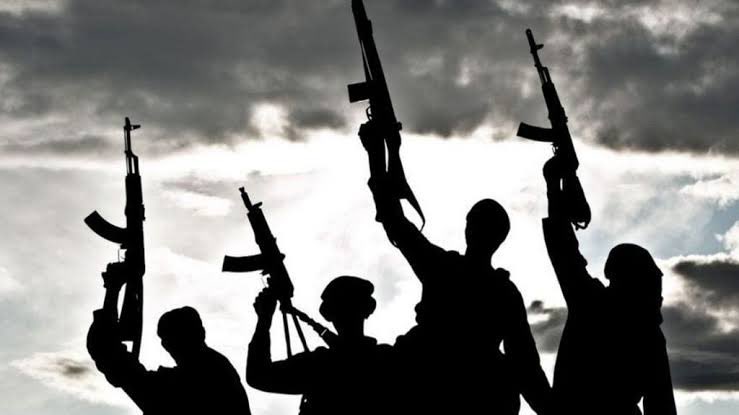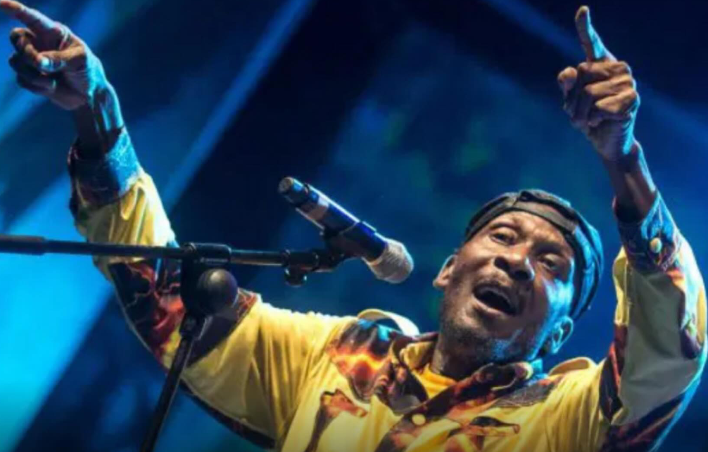
Northern Fury as Youth Leaders Demand Freedom for Hunter Jailed 45 Years After Aiding Security Forces

Northern Nigeria is witnessing a rising wave of anger, disbelief, and frustration following the growing clamour for justice in the case of Musa Nura Aljan, a local hunter whose bravery once earned him praise from both security agencies and civilians battling the scourge of b@nditry. Instead of commendation or recognition for risking his life to protect rural communities, Aljan now sits behind bars, serving a staggering 45-year prison sentence that many say represents one of the clearest cases of injustice in recent memory. His continued incarceration has ignited fresh outrage, with youth leaders, community heads, and residents calling for his immediate release, insisting that Nigeria cannot afford to criminalise those who stand up against lawlessness.
In a strongly worded statement released on Monday, the Arewa Youth Ambassadors (AYA), one of the region’s influential youth coalitions, demanded the unconditional liberation of Aljan. The statement, signed by the group’s spokesperson, Comrade Yahaya M. Abdullahi, expressed “deep concern” over what it described as a gross miscarriage of justice and an alarming signal to citizens who routinely volunteer support to the nation’s overstretched security forces. Abdullahi said the ruling was not only shocking but dangerous, as it risks discouraging community participation in the fight against b@nditry, k+dnapping, and armed cr!minal g@ngs—crimes that have ravaged Northern Nigeria for more than a decade.
For many residents in the affected communities, the news of Aljan’s imprisonment felt like a devastating betrayal. This is a man who, according to locals, routinely accompanied joint task forces into forests, tracked dangerous criminals, and provided crucial intelligence that helped security agencies navigate difficult terrain and identify hideouts used by armed groups. Villagers say he was instrumental in several rescue operations and arrests, volunteering his expertise as a hunter without expecting payment or reward. To them, his current jail term is not only unfair but deeply demoralising.
Eyewitnesses recall how Aljan often led teams of soldiers, vigilantes, and local hunters into deadly zones where even trained operatives hesitated. His knowledge of the forests, footpaths, and the operational patterns of b@ndits made him a priceless asset to the security architecture of the region. Some describe him as a “silent hero” whose courage saved dozens of lives. That such a man now faces decades behind bars has, unsurprisingly, triggered nationwide debate about the treatment of civilian volunteers in Nigeria’s war against insecurity.
The AYA statement emphasised that instead of honouring Aljan for his service, the system has punished him in a way that “defies logic and humanity.” The group accused authorities of failing to properly review his contributions before passing judgment, arguing that the conviction appears to be based on questionable interpretations of the law rather than a holistic understanding of his impact. “It is unjust and unacceptable for someone who risked everything to help rid his community of criminals to end up as a victim of the same system he supported,” the statement read.
Residents say they fear Aljan’s case could set a dangerous precedent that discourages locals from cooperating with security forces at a time when intelligence gathering and community support are urgently needed. In many rural parts of the North, hunters, vigilantes, and volunteers form the first line of defence before federal reinforcements arrive. These communities depend on their bravery, skills, and familiarity with the environment. If such people feel their contributions could land them in prison, many worry that b@ndits will gain more ground as communities retreat into fear and helplessness.
The outrage surrounding Aljan’s imprisonment has also spread across social media platforms, where hashtags demanding his release are gaining traction. Commentators have questioned how someone known for dismantling cr!minal networks could be treated as a cr!minal himself. Some users have even likened the situation to punishing firefighters for putting out fires. Analysts say the case reflects deeper structural issues within Nigeria’s justice system, especially when it comes to cases involving civilians who work informally with security agencies.
Lawyers and activists who have weighed in on the matter argue that Aljan may not have received adequate legal representation and that his case demands an urgent review. Several organisations are now calling for a transparent investigation into the circumstances surrounding his arrest, trial, and conviction. They insist that justice must not only be done but must be seen to be done, especially in matters that can affect national security cooperation.
Security experts warn that the growing distrust between civilians and authorities is dangerous. They argue that Nigeria’s security forces are already overstretched, under-resourced, and battling insurgency, terrorism, and b@nditry across multiple fronts. Any development that discourages civilians from providing intelligence or participating in community defence, they say, poses a serious threat to regional stability.
AYA’s call for Aljan’s release has now intensified pressure on government officials to respond. Several Northern elders, district heads, and civil society groups are expected to join the campaign in the coming days, with plans for peaceful demonstrations already reportedly underway. Residents are urging state and federal authorities to intervene quickly, lest the case inflame existing tensions and further damage public trust.
In many homes across Yagba West, Katsina, Zamfara, and parts of Kaduna, Aljan’s name is synonymous with selflessness. Community leaders recount how he stood at the forefront of dangerous expeditions, refusing to abandon his people even when attacks became more frequent and deadly. As insecurity continues to devastate households—through killings, abductions, and mass displacement—many find it heartbreaking that one of their own, a man who fought to protect them, now languishes in prison.
Calls for his release are growing louder by the day as residents insist that justice must prevail. They argue that if Nigeria hopes to win its war against rampant b@nditry, it must recognize, support, and protect those who step forward to defend their communities—not imprison them. For them, Aljan’s 45-year sentence represents not only a personal tragedy but a collective wound inflicted on citizens who have sacrificed so much to help restore peace.
The unfolding public outcry shows no sign of slowing down. The Arewa Youth Ambassadors say they will continue to mobilise support until Aljan walks free. As the campaign gains traction across the North, many believe the government has a responsibility to listen—not just for Aljan’s sake, but for the broader message it sends to millions of Nigerians fighting, in their own little ways, to keep their communities safe.
For now, the North waits, watches, and hopes that justice will prevail.


